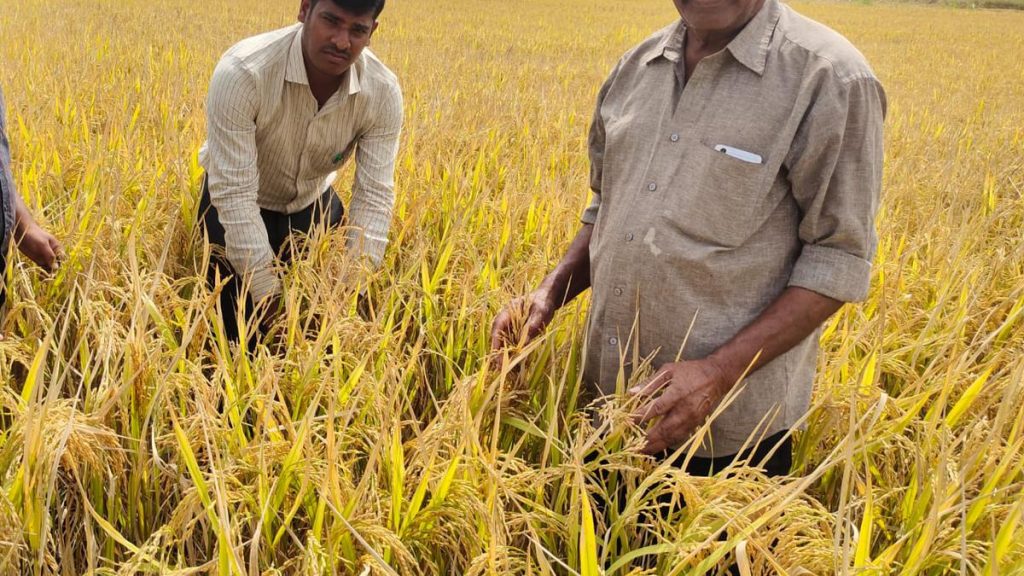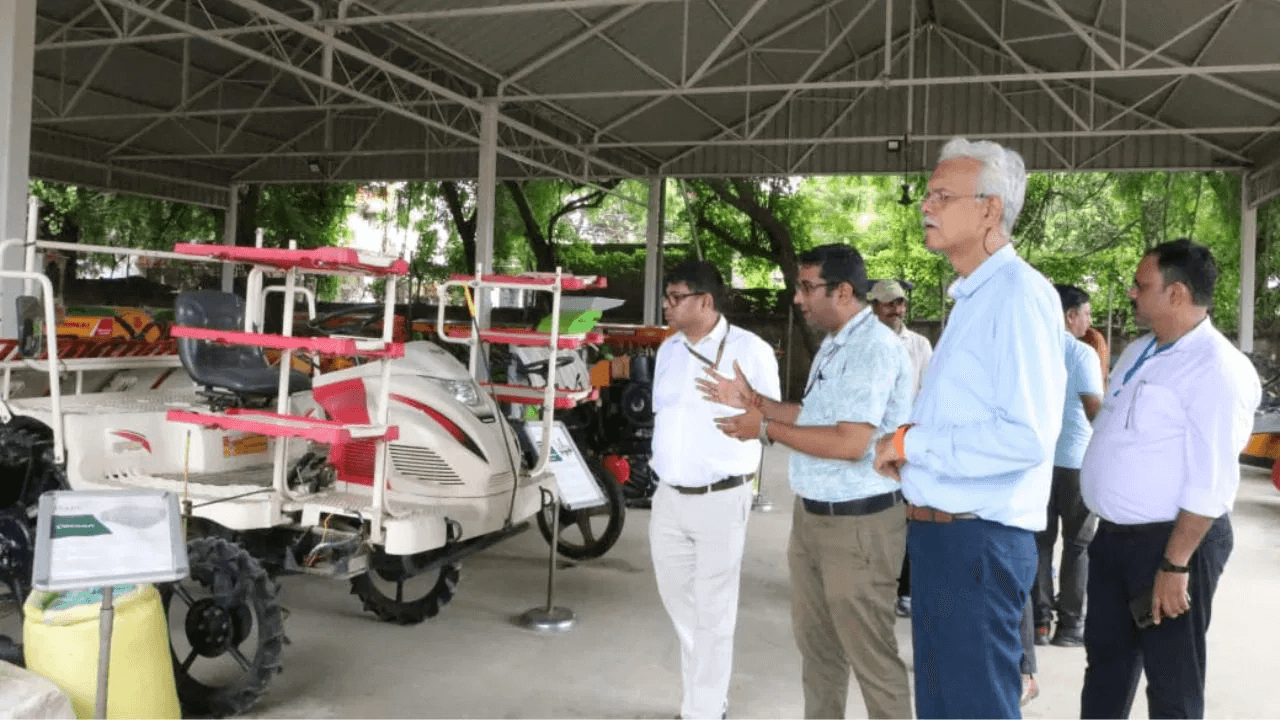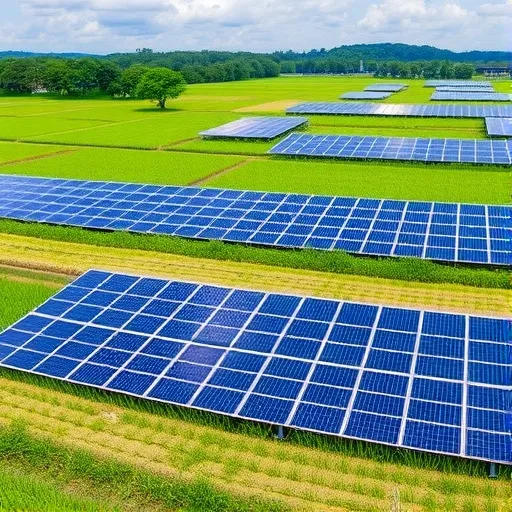Tags
Direct seeding of rice offers hope and prosperity in Siddipet district
Innovative approach allows farmers in Erravalli village to sow paddy seeds directly into wet fields, offering a solution to labour shortages and reducing cultivation costs

P. LAXMA REDDY
Agriculture officials at a paddy field that was grown using the DSR method at Erravalli village of Markook mandal in Siddipet district.
Water-saving direct seeding of rice (DSR), also known as broadcasting seed technique (BST), has emerged as a significant boon for paddy farmers in several parts of the district. This innovative approach allows farmers in Erravalli village to sow paddy seeds directly into wet fields, offering a solution to labour shortages and reducing cultivation costs.
Recognising the challenges inherent in traditional paddy cultivation methods, agricultural officials in Markook mandal in Siddipet district have actively promoted the adoption of DSR. Farmers in Erravali village are now ready for transition from conventional transplanting to direct seeding of rice. Unlike the labour-intensive transplanting method, which involves significant expenses such as nursery management and labour costs averaging around ₹6,000 per acre, DSR requires only 10 to 12 kg of sprouted seeds to be broadcasted. Furthermore, a single individual can broadcast seeds over 5 to 10 acres in a day, significantly expediting the process. Additionally, crops grown using the DSR method typically mature 7 to 10 days earlier than those cultivated through traditional means.
A farmer from Erravali village, Sudhakar Reddy, lauds the timely technical assistance provided by the agriculture department for implementing the DSR method. He says he has earned an additional income of ₹10,000 per acre compared to conventional methods.
Farmer Sankranthi Narasaiah using the DSR method at a paddy field at Lalapuram in Konjerla mandal of Khamma district. (file pic)
Explaining the advantages of DSR, Markook Mandal Agriculture Officer (MAO) T. Nagender Reddy said it would result in higher yield of paddy through timely sowing while also addressing labour shortages. “Compared to traditional cultivation methods involving nursery creation and transplantation, DSR conserves water, reduces labour requirements and cuts down on cultivation costs, all the while mitigating methane emissions. In Erravali village alone, approximately 4,005 acres of paddy are cultivated using the DSR method,” he added.
District Agriculture Officer K. Shiva Prasad observes the increasing interest among farmers to change to DSR, driven by the tangible benefits observed over the past three years in the district. As more farmers witness the advantages first-hand, the momentum towards adopting this water-saving and cost-effective method is expected to continue growing in the coming years in view of the depletion of ground water table and issues in supplying the water from irrigation projects in the State. READ COMMENTSREAD LATERPRINT
https://www.thehindu.com/news/national/telangana/direct-seeding-of-rice-offers-hope-and-prosperity-in-siddipet-district/article68042519.ecePublished Date: April 8, 2024






